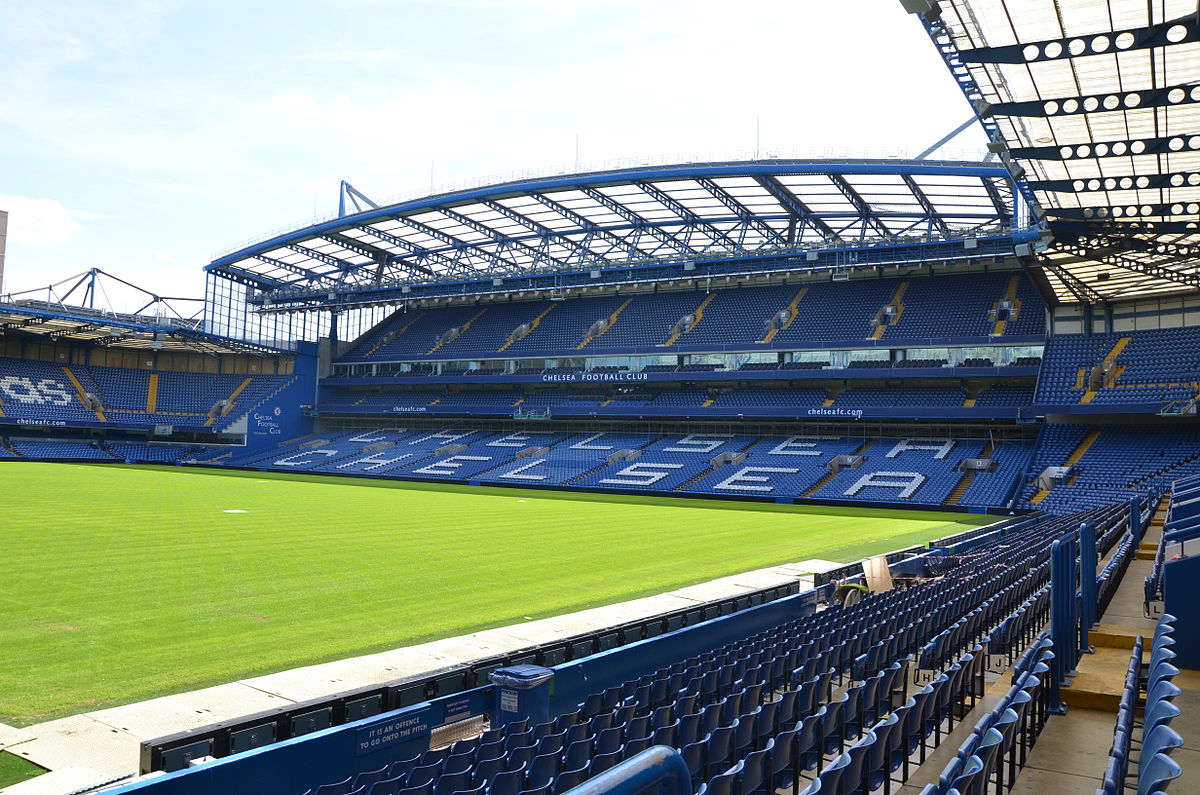© The Fan Experience Company 2020

Chelsea v Liverpool to mark return of standing after near 30-year absence from top two tiers
Chelsea’s Premier League game against Liverpool at Stamford Bridge on 2 January will mark the return of standing to the English top flight after nearly 30 years.
Premier League clubs Manchester United, Manchester City, Tottenham and Chelsea and Championship side Cardiff have all had their applications to be part of a safe standing trial approved.
Since 1994, grounds in the first and second tiers of the English football pyramid have been required by law to be all-seaters.
“I’m pleased to approve these five clubs as early adopters of licensed safe standing areas for the second half of the season,” said sports minister Nigel Huddleston.
“The time is now right to properly trial safe standing in the Premier League and EFL Championship ahead of a decision on a widespread roll-out.
“Safety is absolutely paramount and the SGSA [Sports Grounds Safety Authority] is working hand-in-glove with the clubs on this.
"Fans deserve different options on how they can enjoy a live match and I will be watching the progress of these trials with interest."
Standing in English football’s top two divisions was outlawed following recommendations made in the Taylor Report into the 1989 Hillsborough disaster, which cost 97 Liverpool fans their lives.
In recent seasons, campaigners have called for standing to be reintroduced. Barrier or rail seating has been developed to provide seats that can be converted to standing areas when desired.
In 2016, Scottish Premiership side Celtic became the first British side to open a rail seating section – Scotland was not bound by the law that banned standing areas in the top two divisions in England but its top flight had required all-seater stadiums from 1998 until it relaxed the rule in 2011.
In 2018, new guidance from the SGSA, the body in charge of ground safety, allowed the use of rail seats.
The Conservatives promised to work towards the introduction of safe standing areas in their 2019 general election manifesto and, if the initial trials prove successful, legislation could be introduced for all stadiums in England’s top two divisions within the next few years.
The pilot will be monitored by the independent firm CFE Research, and its findings will be provided to the government for a decision on a possible wider roll-out of safe standing for next season.
Premier League clubs Chelsea, Liverpool, Manchester City, Manchester United, Tottenham and Wolves have all had rail seating installed at their grounds.
The criteria for clubs
Clubs had to meet the following criteria before their application for standing areas was approved:
- Seats with barriers/independent barriers – which must be in both home and away sections – had to be in place before 1 January 2022.
- The seats cannot be locked in the ‘up’ or ‘down’ position, allowing fans the option of being able to sit (for example, during breaks in play).
- There must also be one seat/space per person.
- The licensed standing areas must not impact the viewing standards or other fans, including disabled fans.
- There must be a code of conduct in place for fans in the licensed standing area.
- Briefing and training must be in place for staff and stewards to ensure only relevant ticketholders are admitted to the licensed standing areas.
- CCTV must be in place and offer full coverage of the licensed standing areas.
- The ground must consult with its safety advisory group about plans for the licensed standing areas.
Tottenham chairman Daniel Levy said the club were “delighted” after having been approved as an early adopter of the standing areas.
“We are extremely proud of our ‘safe seating’ design, which ensures both comfort and safety, whether standing or seated, while maintaining the same aesthetics as in all other areas of the stadium,” said Levy.
Manchester United said the development “can create choice and increase safety for fans in areas where persistent standing has historically occurred”.
Original article published 8.11.21 on the BBC Sport website.
To view click here
